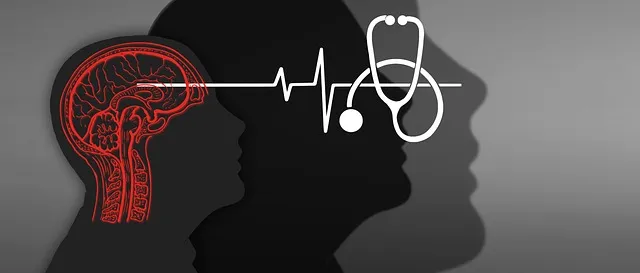Lakewood Kaiser mental health classes equip individuals with essential mood regulation techniques, enhancing emotional intelligence and managing internal states. These evidence-based practices, combining cognitive reframing, mindfulness, exercise, and positive thinking, significantly reduce stress, anxiety, and depression. By fostering self-awareness and resilience, the classes contribute to improved relationships, productivity, and overall mental health awareness, enabling individuals to lead happier, more fulfilling lives while breaking down stigmas related to mental wellness.
Mood regulation is a vital skill, enabling individuals to navigate life’s emotional rollercoasters with balance and resilience. This comprehensive guide explores various strategies to gain control over your emotional state. We delve into the science behind mood regulation, highlighting the beneficial impact of Lakewood Kaiser mental health classes for effective management. Additionally, discover cognitive techniques, lifestyle adjustments, and resilience-building practices to foster long-term emotional well-being.
- Understanding Mood Regulation: Unlocking Emotional Balance
- The Role of Lakewood Kaiser Mental Health Classes in Mood Management
- Cognitive Techniques for Effective Mood Regulation
- Lifestyle Adjustments to Enhance Emotional Well-being
- Building Resilience: Strategies for Long-term Mood Stability
Understanding Mood Regulation: Unlocking Emotional Balance

Understanding Mood Regulation is a pivotal step in achieving and maintaining emotional balance. This process involves recognizing and managing our internal states, allowing us to adapt effectively to various situations. Lakewood Kaiser mental health classes often delve into techniques aimed at enhancing emotional intelligence, providing individuals with tools to recognize triggers, interpret feelings accurately, and respond thoughtfully rather than reacting impulsively.
Emotional well-being promotion techniques, when integrated into daily life, can significantly impact our ability to navigate stress, anxiety, and other challenging emotions. By cultivating a deeper awareness of our mental states, we gain the power to unlock a more positive and resilient mindset. This, in turn, fosters better relationships, enhances productivity, and contributes to overall Mental Health Awareness, enabling us to lead happier, more fulfilling lives.
The Role of Lakewood Kaiser Mental Health Classes in Mood Management

The Lakewood Kaiser mental health classes play a pivotal role in equipping individuals with effective mood regulation strategies. These classes foster an environment that encourages open discussions about mental wellness, breaking down stigmas and promoting better understanding of one’s emotional state. Through interactive sessions led by experienced professionals, participants gain valuable insights into managing stress, anxiety, and depression. By integrating evidence-based practices, the program empowers individuals with tools to navigate life’s challenges more effectively.
Beyond mood management, these classes contribute to a broader Mental Health Awareness movement. They provide a platform for risk assessment and early intervention, crucial elements in preventing mental health issues from escalating. The holistic approach of Lakewood Kaiser prepares participants to become advocates for their own and others’ mental wellness, fostering a supportive community that celebrates resilience and promotes overall well-being.
Cognitive Techniques for Effective Mood Regulation

Cognitive techniques play a pivotal role in effective mood regulation, empowering individuals to gain control over their emotional well-being. Lakewood Kaiser mental health classes offer a range of strategies designed to help people navigate and manage their moods. One such technique is cognitive reframing, where individuals learn to challenge negative thoughts and replace them with more positive and realistic ones. For instance, instead of dwelling on failures, one might reframe them as learning opportunities, fostering a growth mindset and enhancing overall resilience.
Additionally, empathy-building strategies are instrumental in cognitive mood regulation techniques. Developing empathy allows people to understand their own emotions and those of others better, leading to improved emotional intelligence. This skill is particularly beneficial for trauma support services, where individuals can process and heal from past traumatic experiences by cultivating a deeper sense of connection and understanding. Incorporating positive thinking exercises into these mental health classes further reinforces optimistic outlooks, thereby contributing to an individual’s overall mental well-being.
Lifestyle Adjustments to Enhance Emotional Well-being

Adopting certain lifestyle adjustments can significantly enhance emotional well-being and play a crucial role in mood regulation. Incorporating regular physical activity, for instance, has been proven to boost mood and reduce symptoms of anxiety and depression. This could involve anything from brisk walking or yoga to dancing or team sports—finding an activity you enjoy is key to making it a consistent part of your routine.
Additionally, prioritizing sleep hygiene, maintaining a balanced diet, and practicing mindfulness techniques like meditation or deep breathing exercises can profoundly impact mental health. Lakewood Kaiser mental health classes often emphasize these self-awareness exercises (such as journaling and cognitive reframing) and positive thinking strategies to help individuals cultivate resilience and navigate life’s challenges with greater ease. Cultural sensitivity in mental healthcare practice is also integral, ensuring that therapeutic approaches are tailored to meet the unique needs and perspectives of diverse patient populations.
Building Resilience: Strategies for Long-term Mood Stability

Building resilience is a key component to achieving long-term mood stability. Lakewood Kaiser mental health classes offer valuable tools for individuals looking to strengthen their emotional well-being. These classes often focus on strategies such as mindfulness, stress management techniques, and cognitive reframing, which empower people to navigate life’s challenges with greater ease. By learning how to identify and change negative thought patterns, participants gain a deeper sense of control over their emotions, fostering a more resilient mindset.
Incorporating self-care practices into daily routines is another vital aspect of mood regulation. Encouraged by mental health professionals, the development of a robust self-care routine can significantly contribute to overall well-being. This includes activities like regular exercise, adequate sleep, balanced nutrition, and engaging in hobbies that bring joy. Additionally, mental health policy analysis and advocacy play a crucial role in creating supportive environments that promote mood stability for everyone. Initiatives aimed at improving access to mental healthcare services and reducing the stigma surrounding depression prevention can profoundly impact community resilience.
In conclusion, achieving and maintaining emotional balance is a multifaceted journey that involves understanding our moods, adopting effective cognitive techniques, making positive lifestyle adjustments, and building resilience. The article has explored these key aspects, highlighting the importance of strategies like those offered by Lakewood Kaiser mental health classes in fostering mood regulation and enhancing overall well-being. By integrating these diverse approaches into daily life, individuals can navigate emotional challenges more effectively and cultivate a deeper sense of stability and happiness.






